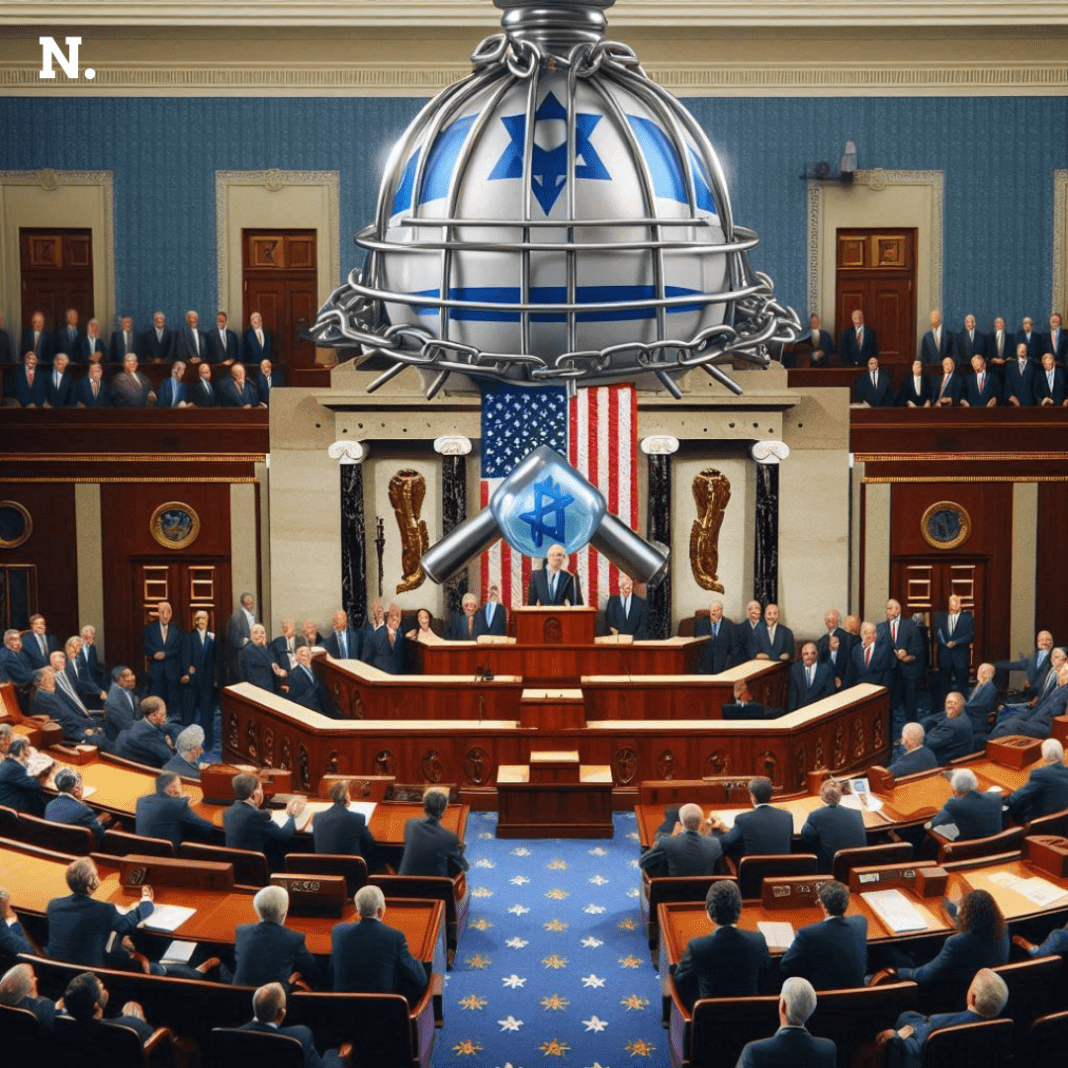In a significant move, the US House of Representatives has passed legislation imposing sanctions on the International Criminal Court (ICC), following the prosecutor’s attempt to seek arrest warrants for officials of Israel over alleged war crimes in Gaza. The legislation secured a majority vote of 247 to 155, with even 42 Democrats voting in favor, signaling America’s steadfast support for Israel amidst international criticism. However, the measure is unlikely to become law, given the Senate’s Democratic dominance, which is not expected to bring the bill to a vote.
Implications of ICC’s Arrest Warrants
The implications of the ICC’s arrest warrants are profound. The bill’s passage closely follows the invitation extended to Mr. Netanyahu to address Congress, although the speech date remains unconfirmed. International Criminal Court Prosecutor Karim Khan asserted ‘reasonable grounds’ for holding Israeli and Hamas officials accountable for war crimes. He also cited crimes against humanity in Gaza. This has triggered outrage from both Israeli and Hamas governments. Prime Minister Netanyahu denounced the warrants as a moral outrage. He highlighted the unprecedented nature of the ICC targeting top officials from a close US ally.
Details of the Legislation
The legislation itself imposes sanctions on individuals involved in ICC prosecutions of US citizens or citizens of non-ICC member US allies, including Israel. These sanctions entail denial of entry into the USA, revocation of US visas, and restrictions on US property transactions. The bill’s proponents argue that the ICC’s actions pose broader implications, potentially threatening American sovereignty if left unaddressed.
Reason Behind the Legislation
Republican Speaker of the House, Mike Johnson, emphasized the accountability of the International Criminal Court. He warned against allowing the ICC to target officials of disagreeing countries. Johnson believes this could eventually target the United States. The White House has expressed disapproval of the ICC’s allegations. It also disapproves of the legislation sanctioning the ICC. The White House advocates for alternative means to defend Israel. They aim to preserve US positions on international justice. The administration has expressed readiness to explore other options with Congress.
Future Stances and Challenges
Looking ahead, the future stance on the ICC’s actions remains uncertain. While the ICC’s 124 member states have the authority to pass warrants issued by judges, neither the USA nor Israel are ICC members. Despite this, the USA has previously supported ICC judgments, particularly during the Russia-Ukraine war. However, Vice President of Government Affairs at the Center for International Policy, Dylan Williams, has urged lawmakers to oppose the bill, cautioning against sanctioning and penalizing international institutions or their members, which he likens to actions of dictatorial regimes.
President Biden’s Announcement
In a separate development, President Biden announced Israel’s presentation of a fresh three-phase plan aimed at establishing a lasting peace, beginning with a six-week total ceasefire.
This legislative move underscores the complex interplay between international justice, diplomatic relations, and domestic politics, highlighting the challenges faced by the United States in navigating its role on the global stage.
Conclusion
The US House of Representatives passed legislation imposing sanctions on the International Criminal Court. This reflects the intricate web of international relations. The balance between accountability and sovereignty is delicate. The House’s vote underscores America’s support for Israel amidst ICC controversy. The bill’s future is uncertain due to the Senate’s Democratic dominance and the White House’s reservations. The ICC’s actions targeting Israeli officials are unprecedented. This highlights the complexities of navigating global justice. Debates on the role of international institutions are prompted. The need to uphold diplomatic relations is emphasized.
As President Biden unveils Israel’s proposal for a three-phase peace plan, the path forward remains uncertain. This controversy underscores the challenges of addressing allegations of war crimes while preserving diplomatic alliances. Ultimately, finding a resolution will require nuanced diplomacy, a commitment to international norms, and a recognition of the intricate dynamics at play on the global stage.





